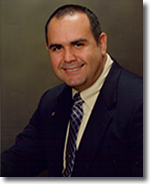
The terms “Medication Therapy Management” (MTM) and “Comprehensive Medication Review”(CMR) are being used more in the pharmacy literature. The pharmacy profession has hung their hopes on these activities to redeem itself and prove that pharmacists can make valid contributions to the medical team and save money in the process. The questionable part I am discovering is that pharmacies are claiming to perform these activities within their regular workflow – during the pharmacist overlap (1-2 hours) and billing for it. While it is not impossible to get these activities done IF the patient is extremely well-prepared with ALL of their CURRENT information and medications ahead of time, it is extremely improbable that the patient is getting the best value of these services within this time frame.
Performing an MTM or CMR is quite an undertaking for pharmacists. If it is done right, a lot of information must be gathered from many parts of the patient’s history and all of it must be synthesized and viewed in its entirety before recommendations, changes, or goals for improvement are made. Some of the information needed from the patient includes:
- Personal History – personal information,
- Social History – personal habits relating to alcohol, smoking, foods, etc.,
- Familial History – family disease history of chronic medical conditions,
- Medical History – Chief complaint, chronic conditions, allergies, labs, and
- Medication History – A list of medications (over-the-counter and prescription) taken on a regular basis.
Gathering the above information from a patient interview can take up to an hour to one and one-half hours depending on interviewing skills and patient preparedness. After this part is done, the synthesizing and fact-checking portion of the process can take between 45 minutes to 1 hour depending on the complexity of the medication regimen and concurrent medical conditions. Once completed, documenting the patient encounter for the patient and the physician with accompanying handouts if needed can require another hour of time.
As you can see from the times referenced above, the process takes approximately 2.5 to 3 hours to complete properly. Along with my own experiences, I have assigned student-pharmacists to log their time spent doing MTMs or CMRs under American Pharmaceutical Association (APhA) guidelines and they all returned with this time frame. So how does it take only an hour to do this everywhere else? Simply put, these pharmacies follow little or no guidelines, use retrospective (old) drug histories from insurance databases, and refer from incomplete personal information. As is said in computer talk: “Garbage in = Garbage out”. The pharmacies have “stripped down” the process to facilitate insurance company billing practices. These pharmacies label their work as an MTM or CMR function, but in reality all that the pharmacists are accomplishing is a high-end “brown-bag” (medication review) function. And the public knows the difference. They know that the pharmacist standing behind the counter is not trained to give them the undivided attention needed to adequately review their case or deal with its complexity to provide the answers they want. Furthermore, to label this as an MTM or CMR borders on ridiculous and can only hurt our profession in the medical community.
Is the objective between the two functions the same? My best answer is “maybe”. I’ll explain it like this: If you drive a low-end car (put a low value on your health), taking it to any mechanic (pharmacist) MAY fix the problem; however, if you drive a high-end car (put a high value on your health), then taking it to a reputable mechanic (certified, trained pharmacist) WILL fix the problem and warranty their work. It all depends on what you want to get out of the process. So, be aware of what you are paying for and make sure that the service is answering all of your concerns.
Until next week, be well.
Dion.

